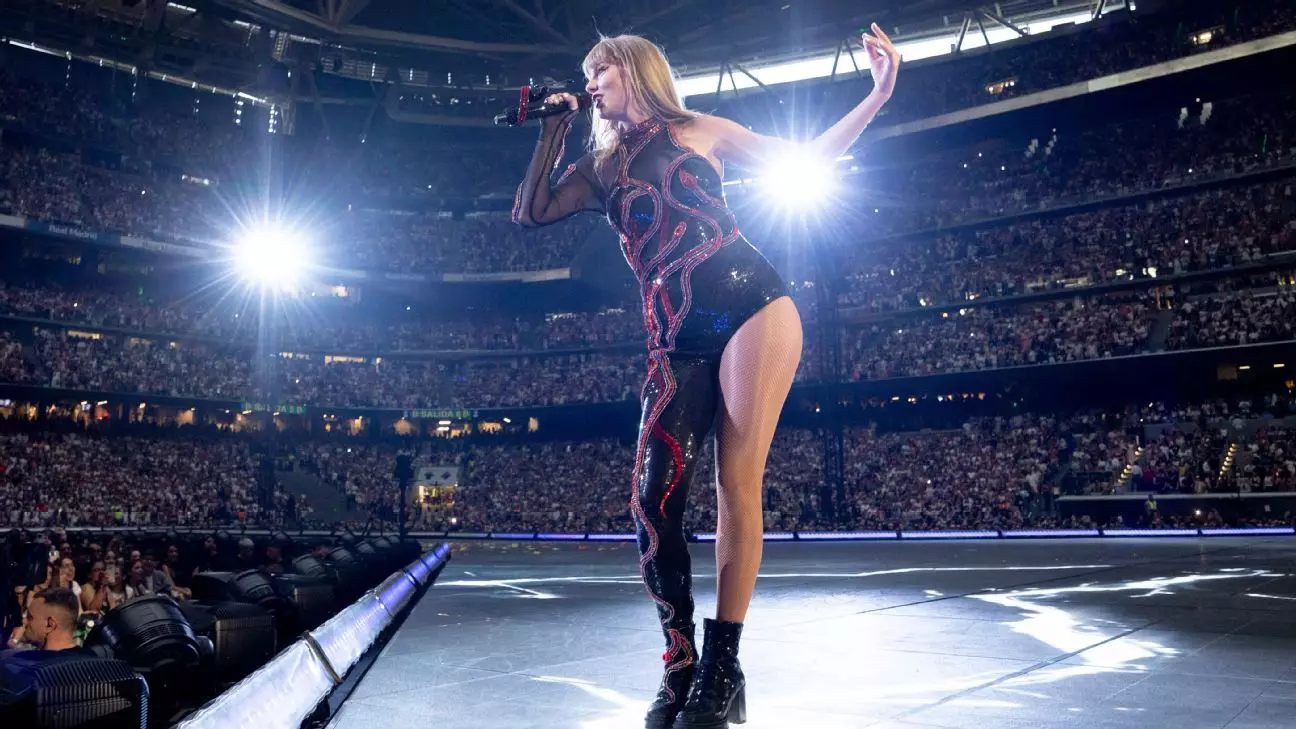In a notable move, Real Madrid has announced the provisional rescheduling of all forthcoming concerts at the illustrious Santiago Bernabéu Stadium, citing noise concerns raised by local residents. This decision underscores the complexities that arise when cultural entertainment venues find themselves at odds with the expectations and comfort of surrounding communities. As the club strives to balance its identity as a football powerhouse with its ambition to serve as a year-round entertainment hub, it faces unique challenges.
The Santiago Bernabéu Stadium, which has undergone recent renovations to enhance its capabilities for hosting concerts, found itself at the heart of community complaints regarding excessive noise levels. Local residents have expressed their grievances particularly following high-profile performances by artists like Taylor Swift and Karol G. The club’s decision indicates a careful consideration of the community’s quality of life versus its commercial aspirations to host popular events that attract fans from far and wide.
Real Madrid’s official statement articulated the club’s intention to adhere to municipal regulations, emphasizing that while soundproofing measures have been implemented, the execution of additional requirements by event organizers has not been sufficiently consistent. This signals a systemic issue not only with the stadium’s infrastructure but also with the broader regulatory environment governing live events.
Initially, major concert events featuring Spanish artists such as Dellafuente, Aitana, and Lola Indigo were scheduled for late 2023 and early 2025. However, the rescheduling of these concerts casts uncertainty over their future at the stadium. While the club assured fans that new dates would be forthcoming, the shift raises important questions about the viability of hosting events in a manner that satisfies both event organizers and community residents.
Interestingly, Real Madrid confirmed that non-musical events would continue as planned, suggesting that the club is keen to maintain economic activity at the venue despite the challenges posed by noise complaints. This might imply a reevaluation of the types of events the stadium is willing to host moving forward, further emphasizing the need for adaptable solutions that can meet community needs while still allowing for vibrant cultural expression.
As Madrid’s city hall acknowledges ongoing noise violations from concerts, it becomes evident that collaborative solutions are necessary to accommodate the interests of all stakeholders involved. This could take the form of enhanced soundproofing technologies, stricter compliance checks for events, or even a potential recalibration of concert schedules to minimize conflicts with the local population’s routines.
Ultimately, the situation presents an opportunity for both Real Madrid and city officials to redefine how entertainment can coexist with residential areas, potentially serving as a precedent for other urban venues facing similar hurdles. The journey ahead for Real Madrid is fraught with challenges, but it might also lead to innovative strategies that enrich the cultural landscape of Madrid while respecting the voices of its residents.

Leave a Reply